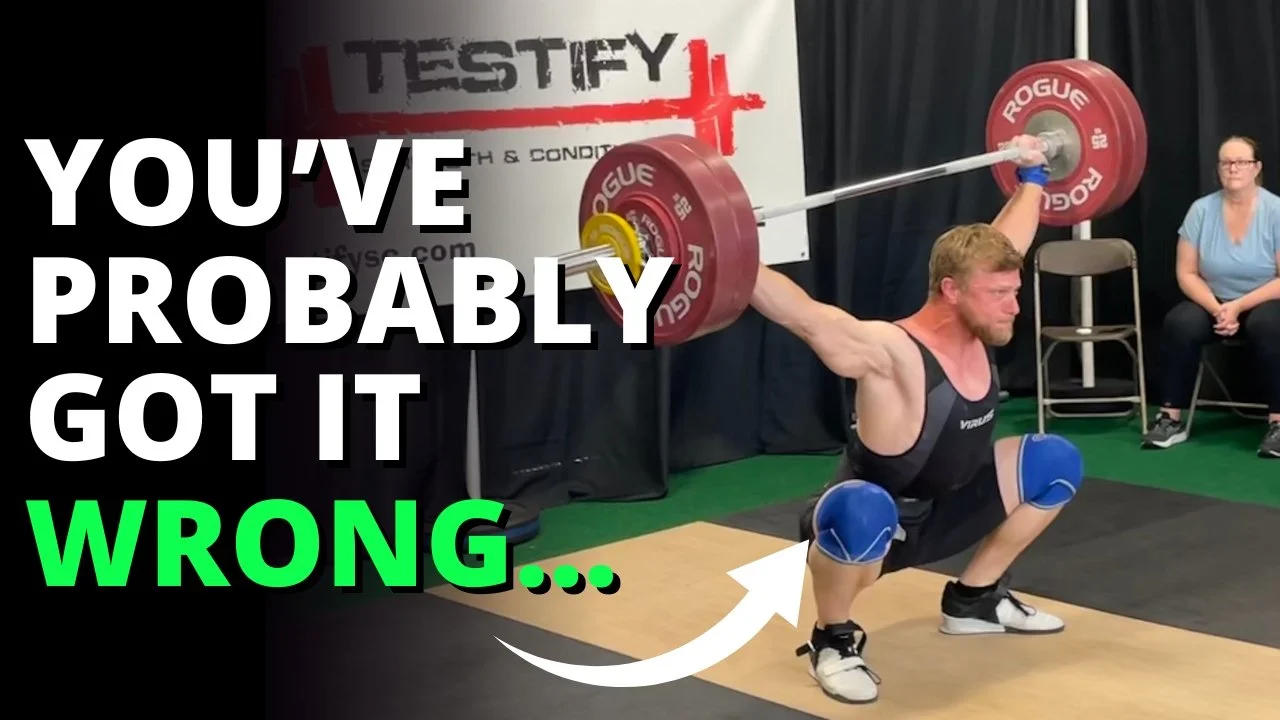What is a Snatch (AKA Squat Snatch or Full Snatch)? | Olympic Weightlifting Technique
/What is a snatch? How is it different from a power snatch or hang snatch? What is a squat snatch? What is a full snatch? Starting Strength Coach Phil Meggers covers it all here in about a minute.
(A Blast from the Past video originally published on 03/04/23)
Whenever you want even more Testify in your life, here are some free resources:
Book a free intro and strategy session with us HERE.
Pick up a free copy of Testify’s Squat Guide: 12 Tips to Improve Your Squat Now HERE.
Get our free weekly email - containing useful videos, articles, and training tips - HERE.
Follow Testify on Instagram HERE.
Subscribe to Testify’s YouTube channel HERE.



